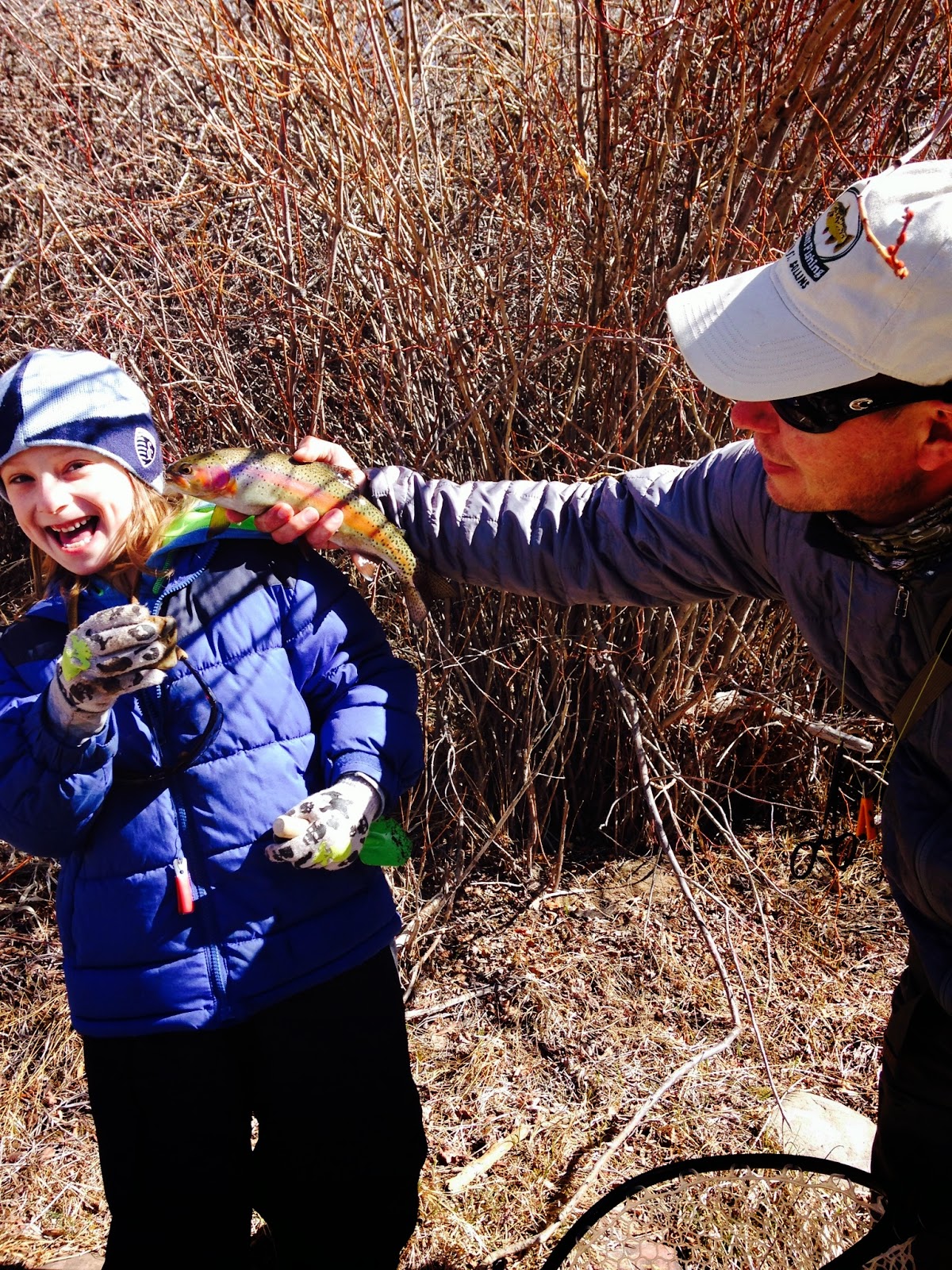One of the
advantages to living on the lower Fryingpan is that most people drive right by
on their frenzied way to the top mile. I
often feel that mile one through four is my own private stretch, and over the
last few years I’ve gotten to know every rock, downed tree and especially the
trout. These fish are noticeably less
paranoid than their cousins in the upper reaches, but that doesn’t mean they’re
easy, either.
The lower
Pan is similar to the Colorado River in that it offers up the earliest and
latest hatches of the year due to its lower elevation. It is warmer closer to town than up at mile
twelve, and already I am seeing caddis, blue winged olives and even a few giant
stoneflies flapping about. This isn’t
the case below the dam yet.
The lower
river continues to fish well through summer, especially if you love casting
grasshopper patterns like I do, and this stretch is ideal for playing around
with European-style nymphing and Tenkara also.
Big boulders, plunge pools, riffles and runs abound on this stretch of
river, which lends itself to these new and experimental styles of presenting
flies to trout.
It is true
that the fish aren’t as big as the mysis-fed slabs in the upper, but there are
trade-offs tha
If the cars
and throngs of wader-clad prospectors start bumming you out in the upper miles
of the Fryingpan this summer, do yourself a favor and check out the water
closer to town. I am perfectly willing
to share my stretch of “private” water with you!
Words and photographs by Scott Spooner
Reprinted from "On the Fly" in the Aspen Times and Post Independent




No comments:
Post a Comment